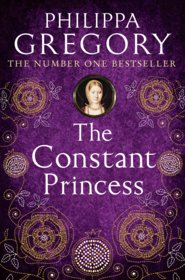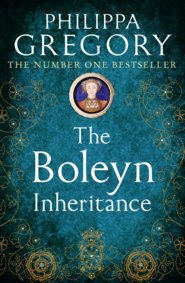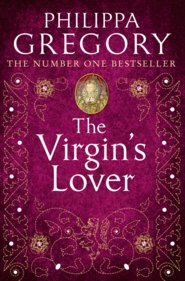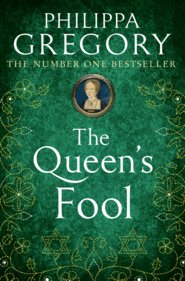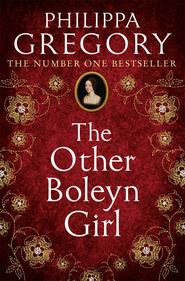По всем вопросам обращайтесь на: info@litportal.ru
(©) 2003-2025.
✖
Earthly Joys
Настройки чтения
Размер шрифта
Высота строк
Поля
As soon as they were safely despatched John called for a laundress to wash and starch his clothes, to clean the dust from his cape so that he might use his letter of introduction to the French king’s own gardener, the famous Jean Robin.
Robin had heard of Tradescant and was desperate for news of the new great palace and gardens at Hatfield. Of course it would be in the French style, it was to be designed by a Frenchman, but what of the woods, what of the walks? And what did Tradescant think of the prices of tulips, were they rising or would they hold steady for another year? How high could the price of a bulb go anyway? Surely there must be a point where a man would pay no higher?
Tradescant and Jean Robin walked around the royal garden for a couple of hours and then retired for a grand dinner enhanced by several bottles of claret from the royal cellar. Jean Robin’s son joined them for the meal, washing the mud from the garden off his hands before he sat down and bowed his head for a Papist grace. Tradescant shifted uneasily in his seat while the ritual Latin was spoken but when the young man broke bread he could not help but smile.
‘I hope that my son too will follow me into my place,’ John said. ‘He’s only a baby now, but I will bring him up to my work and – who knows?’
‘A man who holds a craft should pass it on,’ Jean Robin said, speaking slowly for John’s benefit. ‘But when it is a garden which takes so long to fruit, then you are planting for your son and his sons anyway. It is a fine thing to say to a boy, look out for this tree and when it is grown this high, I want it pruned like that. To know that the garden lives on, and your work and plans for it will live on, even after you are long dead.’
‘It is a poor man’s posterity,’ John said thoughtfully.
‘I should want no other than to leave a beautiful garden,’ Jean Robin declared. He smiled at his son. ‘And what an inheritance for a young man!’
When they parted, a week later, they had sworn eternal friendship in the brotherhood of gardeners, and Tradescant was loaded with trays of cuttings, purses of seeds, and dozens of roots and saplings.
‘And where d’you go now?’ Robin demanded at a final farewell dinner.
John knew an instant temptation to say that he was going on to Spain, that he would ride slowly down the country ways and collect a plant from every roadside verge. ‘Home,’ he said, in his halting French. ‘Home and my wife.’
Robin clapped him on the back. ‘And the new garden at Hatfield,’ he said, as if there was no doubt which was the most important.
John arrived back at Meopham in December to kiss Elizabeth and make his peace with Baby J, who was angry at being neglected. He had brought Baby J a little wooden soldier, carved by a Frenchman and dressed in the uniform of the king’s personal guard. Baby J was talking clearly now and very firm in his opinions. He particularly disapproved of John’s return to Elizabeth’s bed.
‘That’s my place,’ he stated flatly, glaring at his father in the early hours of John’s first day at home. John, who had planned to make love to Elizabeth when they woke, was rather taken aback by the unmistakable enmity in his son’s little face.
‘This is my bed,’ John said reasonably. ‘And my wife.’
‘She’s my mother!’ Baby J shouted and launched himself at his father.
John caught the little fists and tucked the writhing, angry body under his arm. ‘Hey day! What’s this? I’m home now, Baby J, and this is my place.’
Elizabeth smiled at the two of them. ‘He’s been the man of the house for three months, John, you stayed away too long.’
John bent his face down to his little son’s wriggling body and smacked a kiss on his bare stomach. ‘He’ll learn to love me again,’ he said. ‘I shall stay till Twelfth Night.’
Elizabeth did not protest, she was learning that the lord’s garden came before everything, but she swept out of bed in a way which made her feelings very plain. John let her go, his eyes on his son’s bright little face.
‘One time I shall take you with me,’ he promised. ‘It’s not that I’m in your place here – you should be sharing my place with me.’ He nodded to the window which overlooked the village street but he meant the wider world, beyond the lanes to London, beyond even London. He meant Europe, he meant Africa, he meant the East.
Spring 1611 (#ulink_ef8254ac-1b89-51ed-a0a4-90a63d7ca088)
John stayed for little more than three weeks at Meopham, long enough to get under Elizabeth’s feet in the little cottage and to make his peace with his son, before hiring another cart and driver and travelling down the mud-filled, almost impassable roads to Dorset, seeking more trees for sale: apple trees for the orchard, cherry, pear, quince, plum. Trees for the park: oak, rowan, birch, beech.
‘Wherever will you get them all from?’ Elizabeth wondered, bringing him his well-darned travelling cloak and packing a basket of food under the seat of the wagon.
‘I shall buy them from the orchards,’ John said determinedly. ‘They sell apples by the dozen, why not trees?’
‘And the wild trees for the earl’s park?’
‘I shall take them,’ John said recklessly. ‘From every forest I pass on my way. I shall be going through the New Forest, every sapling I see I shall stop and dig up.’
‘You will be hanged for certain!’ Elizabeth exclaimed. ‘You will be hauled before the verderers’ courts and hanged for damaging the royal chase.’
‘How else am I to find my lord’s trees?’ John demanded. ‘How else am I to do it?’
John travelled around England and brought back his swaying whispering carts filled with the bushy heads of trees. They came to know
him on the West Road, and when children saw him coming into a town with his carts rumbling behind him they would run to the well to fetch a bucket to water Mr Tradescant’s trees.
The great house was nearly finished and the gardens were slowly shaping according to the master plan. There had only been one long delay when the workmen had run short of money, and even the great Cecil coffers had run dry. John had feared for his lord then, feared that the cost of the house and the cost of the garden had overstretched him, as everyone had warned that it would. John sensed, but did not know, that there were enemies on every side at court who might bow to and flatter the Secretary of State now, but at the least sign of weakness would pull him down like a pack of hounds upon an old stag. Just as the rumours got out that Cecil had overreached himself and would fail, there was more money delivered to the builders, and more money at the goldsmiths’ in the little provincial towns for John to draw on to buy his trees.
‘How did you manage it?’ John asked Cecil. ‘Have you sold your soul, my lord?’
Cecil’s smile was grim. ‘All but,’ he said. ‘I sold every other property I owned, and borrowed on the rest. But I had to have my house, John. And we had to have our garden.’
John first laboured on the acres which faced the house, especially the huge knot garden below the terrace where the earl had his private rooms. Each path leading from the house was precisely aligned to the windows of the private rooms so that Cecil, looking out, would always see a vista of straight lines, running outwards to the distant horizon. Tradescant, breaking with tradition, planted different edging plants at each junction of the outward path so the colour of the hedges melted and grew paler as the eye was drawn further and further from the house. At each crossroads was a little statue, an aid to meditation on the fleeting nature of life and the vanity of wishes.
‘I might as well have put up a moneylender’s sign,’ Cecil said dourly to John when they walked the new paths, and John grinned.
‘You were warned, my lord,’ he said lovingly. ‘But you would have your own way.’
‘And are you telling me I was wrong?’ Cecil asked with a dark upwards gleam at the taller man.
Tradescant shook his head. ‘Not I! It was a great venture. And grandly carried out. And still much to do.’
‘You have given me a great gift,’ the earl said thoughtfully. They climbed the steps to the stone terrace, Cecil heaving his lame leg, refusing to take help, John beside him, his hands pushed deep into his pockets to prevent him reaching out and holding his master’s arm. They gained the top of the terrace and Cecil gave John a quick glance which thanked him for his forbearance.
‘Walk with me,’ he said.
The two men strolled side by side on the new paving stone, and looked down on the patterns of the twisting beds of the knot garden. ‘You have given me a great gift because every year it will grow more lovely. Most gifts are consumed in the first weeks, like young love. But you have given me a gift which will be here long after we are both gone.’
John nodded. The sky above them was soft and grey, only in the west was there a line of rosy cloud where the sun had gone. An owl called in the wood and then they saw its pale shape drift across the new orchard in the distance where the land fell away down to the valley.
The earl smiled. ‘Sometimes I think the greatest thing that I ever did for England was to set you to work, my John. Nothing in my life gives me more joy.’
Tradescant waited. Often these days, the earl was disinclined to talk and would walk in silence with his gardener through the slowly emerging shapes of the garden and park. His work was daily growing more arduous; the power of the favourites around the king was undiminished, the problems of the court profligacy greater than ever. The fashion for masques now dominated at court and every occasion was marked with a catastrophically expensive play written, composed, designed and produced in one night, and completely forgotten the next. Every court favourite, the women as well as the men, had to have a costume blazing with jewels, every important role had to arrive in a chariot or depart with fireworks.
King James had inherited a fortune with the throne of England. The legendary meanness of the old queen had served the country extraordinarily well. Her father had left her a throne with two sources of revenue: the steady flow of money from the sale of places at court, favours, and civic jobs, and the rare bounties voted in taxes by an agreeable Parliament. The balance was a delicate one. Tax the wealth of the industries too sharply and the merchants, traders, and bankers would complain. Go cap in hand to Parliament too often and the country squires who sat there would buy control of royal policy. Only by scrimping on every expenditure, by borrowing, by insisting on constant gifts and by downright out-and-out corruption, had the Tudor King Henry and his daughter Elizabeth amassed a fortune for themselves, and a steady reliable prosperity for their kingdoms. The almighty theft of the Roman Catholic church possessions had started the process, but Tudor charm and Tudor guile had continued it.
King James was new to this process but he had Cecil and half a hundred others to advise him. The earl had thought that the new king, who had previously managed hand-to-mouth in cold castles in a poor kingdom, would show all of the family’s legendary parsimony and have no experience of their love of show.
But it was a habit quickly learned. James, new-come to one of the richest thrones in Europe, could see no reason why he should not have everything he desired. The money from the royal treasury poured out in fountains over the new favourites, over the new luxurious court, for every beautiful woman, for every pretty man. Not even Cecil’s constant struggle with the farming out of taxes, the sale of honours, the exploitation of orphans left in trust to the king, could keep the throne in profit; soon the king would have to call another parliament, and they would speak against him, and against the favourites at court, and the whole question of the king and the people would be thrown open, and who knew where such a debate might lead?
The earl limped forward. His arthritic hip pained him to walk, and it had grown worse in the last few months. John, without offering sympathy, moved a little closer and his master leaned on his shoulder.
‘All I have ever done is juggle with the forces which drive us,’ the earl said. ‘All I ever have to do is to fend off consequences. He’s running through the old queen’s fortune as if there were no bottom to the well. And nothing to show for it. No roads, no Navy, no protection for shipping, no new colonies to mention … and not even a bit of show for the people.’
It was growing darker, the cool early summer twilight hid the bare places of the garden, masked the awkward corners. The earl’s favourite pinks, which John had planted in great ornamental urns on the terrace, scented the air as their cloaks brushed by. John bent to pick a spray and handed it to him.







